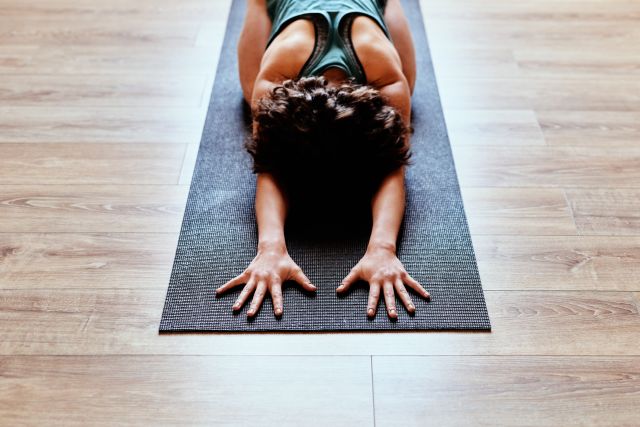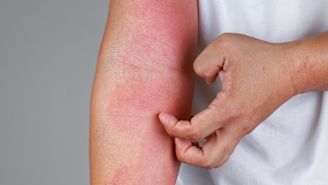Getting regular exercise is one of the most beneficial things you can do for your overall health. Aside from strengthening your muscles, helping you maintain a healthy weight, and reducing your risk of many diseases, exercise can also improve your mood, boost your energy, and help you sleep better at night.
Exercise is especially important for people who are managing a chronic health condition such as atopic dermatitis. Unfortunately, having a chronic health condition like atopic dermatitis can make working out more of a challenge.
Here, we look at some tips for working out without making your symptoms worse.
Exercise and atopic dermatitis flares
Changes in body temperature, irritation from the clothing you wear, and a poorly ventilated gym can all contribute to discomfort and itchiness for people who have atopic dermatitis.
Sweating can also aggravate symptoms for some people, for multiple reasons. Sweating means the body is losing fluid, which can contribute to dry skin. Certain chemical components found in sweat may promote inflammation or act as an irritant, and some studies have found that the chemical composition of sweat is different when a person has atopic dermatitis.
AD also impairs the normal functioning of the skin, including the skin’s ability to sweat, which may also contribute to symptoms.
How to work out
The type of exercise you choose will depend on your fitness level, fitness goals, and other health considerations. It’s worth talking to your healthcare provider before beginning an exercise routine—especially if you have not exercised regularly in the past.
Write down what you want to achieve with your workouts—weight loss, flexibility, strength training, or simply making time to move around throughout the day. These are important considerations when choosing how to exercise.
Some forms of exercise may carry more risks than others. For example, contact sports may have an increased risk of flare-ups, because they carry a greater risk of injuries to the skin.
However, sports and group activities can also be beneficial for mental health, improving mood and offering a sense of camaraderie.
Where to work out
Working out at home can be a great option—you can control the temperature, hop in the shower as needed, and blast your favorite music as loud as you want.
However, going to a gym may provide a larger variety of workout options as well as the option to work with a trainer. Don’t be afraid to visit different gyms and ask questions. Find out how good the ventilation is, what the temperature is like, how crowded it gets, and—because you’ll want to rinse off immediately after each workout—what the showers are like.
If you prefer being outside, you can go for a walk or a run around your neighborhood. Just be mindful of your triggers—consider going out first thing in the morning or later in the evening to avoid harsh sun and high temperatures, wear sunscreen, and wear protective clothing. Also, stay hydrated!
What to wear
While clothing preferences differ from person to person, there are some materials that may irritate your skin more than others. Polyester and nylon allow less air flow and may cause you to overheat which can cause a flare-up. Cotton is often the safest choice, as it allows your skin to breathe. Be aware of any seams or tags that can cause itchiness, and make sure you wash your clothes after each use.
If you exercise outside, wear sunscreen. You want a sunscreen that is mineral based (titanium dioxide or zinc oxide), protects from UVA and UVB rays, has an SPF of 30 or higher, and is alcohol free.
Post-workout skincare
Your post-workout routine is just as important as the workout itself. Skip the hot shower and take a brief lukewarm or cool shower to avoid irritating your skin. Use fragrance-free soap. Pat yourself dry with a clean towel and lather up with lotion to keep your skin moisturized.
Exercise is also something to discuss with your healthcare provider. If you have any questions about the benefits of exercise or exercising when you have atopic dermatitis, bring them up at your next appointment.







